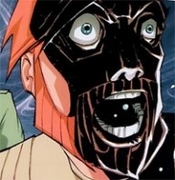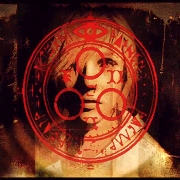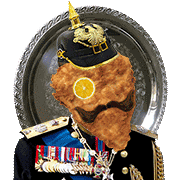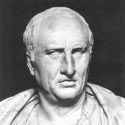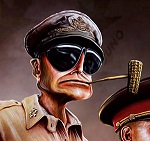|
Nektu posted:Wasn't he actually poor when he and Jack first met? I think the inheritance came a few books later. There's two big shifts in his character between M&C and Post Captain. His relative wealth/inheritance in Spain* and the fact that he's suddenly an intelligence agent for the British Government where in M&C there's no hint of it an in fact he explicitly says that he's completely done with politics of all stripes. My take has always been that these changes are less a reflection of changes in his thinking as a person, and instead they're changes that O'Brien made when he decided to turn a one-off book into a series. I think the two changes give him a lot more plot hooks to develop and O'Brien inserted them for authorial strategy reasons rather than natural character development. *Catalonia
|
|
|
|

|
| # ? Apr 25, 2024 15:35 |
|
Notahippie posted:There's two big shifts in his character between M&C and Post Captain. His relative wealth/inheritance in Spain* and the fact that he's suddenly an intelligence agent for the British Government where in M&C there's no hint of it an in fact he explicitly says that he's completely done with politics of all stripes. My take has always been that these changes are less a reflection of changes in his thinking as a person, and instead they're changes that O'Brien made when he decided to turn a one-off book into a series. I think the two changes give him a lot more plot hooks to develop and O'Brien inserted them for authorial strategy reasons rather than natural character development. It's been years so my recollection might be rusty but I'm pretty sure there are scenes in M&C which in hindsight were subtle hints that Maturin was a spy Wasn't he dropped off on a beach somewhere to 'visit a friend' or some such thing?
|
|
|
|
Notahippie posted:There's two big shifts in his character between M&C and Post Captain. His relative wealth/inheritance in Spain* and the fact that he's suddenly an intelligence agent for the British Government where in M&C there's no hint of it an in fact he explicitly says that he's completely done with politics of all stripes. My take has always been that these changes are less a reflection of changes in his thinking as a person, and instead they're changes that O'Brien made when he decided to turn a one-off book into a series. I think the two changes give him a lot more plot hooks to develop and O'Brien inserted them for authorial strategy reasons rather than natural character development. Yeah, that's my reading of it too.
|
|
|
|
I thought that had to do with Irish Independence, he didn't get into spying for the British until later, but my recollection is a bit hazy.
|
|
|
|
Notahippie posted:There's two big shifts in his character between M&C and Post Captain. His relative wealth/inheritance in Spain* and the fact that he's suddenly an intelligence agent for the British Government where in M&C there's no hint of it an in fact he explicitly says that he's completely done with politics of all stripes. My take has always been that these changes are less a reflection of changes in his thinking as a person, and instead they're changes that O'Brien made when he decided to turn a one-off book into a series. I think the two changes give him a lot more plot hooks to develop and O'Brien inserted them for authorial strategy reasons rather than natural character development. Lockback posted:I thought that had to do with Irish Independence, he didn't get into spying for the British until later, but my recollection is a bit hazy. The Lord Bude posted:It's been years so my recollection might be rusty but I'm pretty sure there are scenes in M&C which in hindsight were subtle hints that Maturin was a spy Wasn't he dropped off on a beach somewhere to 'visit a friend' or some such thing? I agree that it was an aspect O'Brian definitely expanded on when writing Post Captain, but it's definitely built in from the beginning. The going ashore in Catalonia thing is a bit more nebulous (it's played for laughs that Aubrey assumed he was going for a romantic tryst, and is shocked when Maturin just describes going about attending social gatherings) and I am inclined to say it was just Stephen going and catching up with local acquaintances. But from the very first, Stephen is an ex-United-Irishman and therefore fully read into all the covert activity which he does so much of later. He demonstrates experience with password recognition signs with Dillon and his dissembling on meeting Dillon (affecting not to know him) seems like purely social dishonesty, but actually does have its roots in necessary secrecy. Dude's a member of 2 proscribed political organisations when Jack meets him, and at least one of those is explicit from the first book.
|
|
|
|
Genghis Cohen posted:
Yes, but his focus on Irish freedom is much stronger in M&C than later books and the British government tortured and killed most of his friends in the United Irishmen so you'd think there'd be some acknowledgement of the tension there. But to me the big piece is how he's portrayed in talking to Dillon... he comes across as genuinely and honestly done with politics after how badly the United Irishmen rebellion goes and how the French rebellion turns into tyranny. He tells Dillon something like "at this point in my life I wouldn't walk across the room to unseat Napoleon." You can retrofit that as him maintaining his cover, but to me it's too consistent with how he's portrayed in M&C and there's a rather sudden switch in Post Captain to his secret agent activities being front-and-center. I think if O'Brien had him as an intelligence agent in his mind the whole time he wouldn't have been so fully realized as a young idealist who was completely burnt out on politics.
|
|
|
|
Hard to know what O'Brian intended in the beginning, given that he's admitted that if he'd known he was going to make a whole series he would have started the books much earlier chronologically. But he clearly liked Maturin as a character, and realized that he needed to give him a purpose beyond surgeon and naturalist. It also gave him a great hook for the plots of a lot of the books, since it meant he could make things more complicated than just "ships go bang", as fun as those parts are.
|
|
|
|
thekeeshman posted:more complicated than just "ships go bang", as fun as those parts are. In a few cases the wind doesn't seem to line up with reality, and some things only make sense if leeway makes up most of their course made true. ps And if it's the fuggen Polychrest, who knows which direction it's going!
|
|
|
|
I have a question regarding age of sail careers and I figured this would be the best place to ask. If a sailor wanted to switch careers or quit being a sailor would there be a process for them to leave the service? I know that the Empire was pretty notorious for pressganging people to man their ships, and port cities might as well be vegas for how fast they could empty a sailor's pockets. How difficult would it be for a sailor to switch careers once they got the king's shilling?
|
|
|
|
Arcsquad12 posted:I have a question regarding age of sail careers and I figured this would be the best place to ask. If a sailor wanted to switch careers or quit being a sailor would there be a process for them to leave the service? I know that the Empire was pretty notorious for pressganging people to man their ships, and port cities might as well be vegas for how fast they could empty a sailor's pockets. How difficult would it be for a sailor to switch careers once they got the king's shilling? There wasn't a term, you'd be free to go when the ship was paid off. Practically, this had the effect of giving sailors a heap of money in port after they'd been at sea for likely years, which means they'd be broke quickly, which means they'd want to sign back up. O'Brian mentioned one of the times Jack paid off the crew that a bunch of them tried to open pubs that failed, which I bet was a common plan for a lot of those sailors who came back with a large prize purse. Though from what I understand Navy pay was frequently in arrears and delayed months/years, which would be a huge problem for sailors trying to start a new life, another thing pushing them to stay on. Also, keep in mind, outside of war time their wasn't nearly the kind of standing Navy you'd think of now, they'd only employ a small portion of the sailors. So being a lifer wasn't exactly a common occurrence either, during peacetime it'd be hard to find a ship to crew. Also, the kind of prizes Jack brought in were ludicrous, so you probably couldn't count on any money beyond the (again, delayed_pay. So to answer your question, there was no hindrance to switching careers (and most did once war was over) but many/most were probably broke shortly after so starting a new enterprise wasn't exactly easy either.
|
|
|
|
Lockback posted:There wasn't a term, you'd be free to go when the ship was paid off. Practically, this had the effect of giving sailors a heap of money in port after they'd been at sea for likely years, which means they'd be broke quickly, which means they'd want to sign back up. There's an important adjunct to this though which is that the Navy got to decide when the ship was paid off, not you. So you could switch careers easily enough once the ship was paid off, but until then if you tried that was desertion and you'd be hung (edit: hanged - pictures are hung, people are hanged). Notahippie fucked around with this message at 22:34 on Jun 8, 2020 |
|
|
|
Notahippie posted:you'd be hung (edit: hanged - pictures are hung, people are hanged). ...some people are hung.
|
|
|
|
ulmont posted:...some people are hung. There's an Aubreyism just waiting here.
|
|
|
|
[insert joke from Blazing Saddles here]
|
|
|
|
Mr. Mambold posted:There's an Aubreyism just waiting here. Just wait until they meet Jack's bankers
|
|
|
|
Notahippie posted:There's an important adjunct to this though which is that the Navy got to decide when the ship was paid off, not you. So you could switch careers easily enough once the ship was paid off, but until then if you tried that was desertion and you'd be hung (edit: hanged - pictures are hung, people are hanged). Yeah there's at least one point in the books where a ship sails in and is about to get paid off but the navy just reassigns the crew to other ships since they're all undermanned. And Jack skips about with glee because now he has 50 more actual sailors in his crew instead of 50 more useless criminals.
|
|
|
|
Also, depending on how short-handed the navy was at that moment (very-all the time) all "eligible men of seafaring habits between the ages of 18 and 55 years" were liable to be impressed. Some merchant seaman could get immunity, but 'of seafaring habits' was often pretty liberally interpreted to mean 'in a town next to the sea,' so changing careers often meant a expending a considerable amount of effort avoiding the press. Navy pay was occasionally 2 years in arrears, and the RN made a habit of making sure pay was 6 months in arrears to discourage desertion. Naval pay was set in 1653 and didn't change until the Spithead mutiny in 1797, and so at least in the early French Revolutionary Wars, merchant service paid much much better. Desertion rates really dropped off after a man had been at sea for about a year-partly from getting sued to life on a ship, but also not wanting to give up all the back pay the sailor was owed.
|
|
|
|
MeatwadIsGod posted:[insert joke from Blazing Saddles here] They was right! This is really helpful information, thank you all. It paints a wider picture of Naval life in context of its surroundings rather than being an exclusive thing. Part of a bigger world. Arc Hammer fucked around with this message at 01:28 on Jun 10, 2020 |
|
|
|
Keep the chat going. With all the positive reinforcement, I almost started reading it the other day. Mr. Mambold posted:There's an Aubreyism just waiting here.
|
|
|
|
Just read the part in ionian mission where the skates were turned over, poor guys. Also I love that book for Babbington’s floating bordello.
jerman999 fucked around with this message at 14:14 on Jun 10, 2020 |
|
|
|
jerman999 posted:Just read the part in ionian mission where the skates were turned over, poor guys. Also I love that book for Babbington’s floating bordello. I think spoilering the book title defeats the purpose a little...
|
|
|
|
I'm rereading the series, and I'm at Treason's Harbour and found a bit that I hadn't thought about before. Stephen is taking coffee with Wray and has just said he wants to go gaming and there's an aside that reads "since he [Stephen] had spent a long time in a Spanish prison in the same cell as a wealthy card-sharper (a man not condemned to the garotte for cheating, since he had never been discovered, but for rape) it was at least unlikely that he should be grossly imposed upon." That has to be outside of the time covered by the books, right? I can't think of any Spanish prison in the series, which makes me wonder WTF he was getting up to before Master & Commander.
|
|
|
|
You could argue his imprisonment in Port Mahon, but that probably wasn't conducive to studying gambling and cheating at cards, and a regular prisoner wouldn't be sent there. His godfather was a Catalonian nationalist, and Maturin did specify a Spanish prison, so maybe something to do with that?
|
|
|
|
Yeah, I'm pretty sure that's before the books. They're both in their mid-late twenties when they meet, so there's time before that for some interesting things to have happened.
|
|
|
|
A few paragraphs later he says he won't play dice because he promised his godfather never to touch them after he "got him out of a sad scrape when he was younger," so there's an interesting picture of young Stephen there.
|
|
|
|
Notahippie posted:A few paragraphs later he says he won't play dice because he promised his godfather never to touch them after he "got him out of a sad scrape when he was younger," so there's an interesting picture of young Stephen there. Well, the gambling issue is very in character, given his substance abuse issues in the books, clearly he has an addiction-prone personality. His inner rationalizations in the books are way too real.
|
|
|
|
What was a "pot of coffee" back then? I just got to the bit in Reverse of the Medal where Jack meets a guy in a chophouse and the guy offers to share his chaise with him. The guy gets up from the table and Jack says "Aren't you going to stay for coffee?" and the guy says his stomach is disturbed but don't worry, you'll have time for two or even three pots of coffee. And then he says let's meet at the chaise in a quarter of an hour, and I'm left wondering how anyone could possibly drink three pots of coffee in fifteen minutes. I assume we're talking a small moka pot full of coffee, but even so. Did people just gulp them down back then?
|
|
|
|
I have the same confusion about the size of a glass of wine. Feel like these dudes drank a lot but still seems like they are downing glasses during dinner toasts.
|
|
|
|
Are they not? I heard the average English gentleman usually drank about two bottles of wine each day anyway, and probably more when they were going to dinner parties. There was definitely more than one occasion where Jack's dinner guests slid off their seats in an alcoholic stupor.
|
|
|
|
jerman999 posted:I have the same confusion about the size of a glass of wine. Feel like these dudes drank a lot but still seems like they are downing glasses during dinner toasts. 18th century wine glasses were much smaller than today. Think like a sherry glass- they probably hold 2-3oz tops? It's my understanding that the whole glass/bumper was usually drunk down in one sip, and was usually drunk with someone, at least in formal settings. That's why there's all this 'a glass of wine with you sir!' and then two make eye contact and drink down their glass, and a servant refills it. It's not unlike doing a shot with someone today, only for 3 hours at dinner. People also ate ALOT especially in the 18th c. Fashions were beginning to change in the period the books cover and the portly, John Bull country squire was going out and a slimmer, more Romantic, Byron-esque figure was becoming fashionable by the end of the Napoleonic Wars. I don't know if bottle sizes were really standardized then or not, or how they compare to today's standard 750ml bottle. But yeah, people definitely drank plenty. A seaman's daily rum ration was half a pint (8oz) of 57% ABV rum, served out twice daily diluted 4:1 with water, so 4oz of rum in 16oz of water with some lime juice twice a day. That's actually pretty close to equivalent to a bottle of 11% ABV wine, twice a day.
|
|
|
|
Kaiser Schnitzel posted:I don't know if bottle sizes were really standardized then or not, or how they compare to today's standard 750ml bottle. But yeah, people definitely drank plenty. A seaman's daily rum ration was half a pint (8oz) of 57% ABV rum, served out twice daily diluted 4:1 with water, so 4oz of rum in 16oz of water with some lime juice twice a day. That's actually pretty close to equivalent to a bottle of 11% ABV wine, twice a day. Not unlike the shelter-in-place routine.
|
|
|
Kaiser Schnitzel posted:18th century wine glasses were much smaller than today. Think like a sherry glass- they probably hold 2-3oz tops? I just went online and impulse bought a set of six gilt-leaf uranium glass sherry cordial glasses because of this post, hope you're happy
|
|
|
|
|
Tag for following. I've only just started reading Master and Commander, is there commentary on it in this thread somewhere? I'm having a lot of trouble getting the slang.
|
|
|
|
Tias posted:Tag for following. I've only just started reading Master and Commander, is there commentary on it in this thread somewhere? I'm having a lot of trouble getting the slang. Here are translations for the foreign phrases: http://www.saignon.org/FINE%20BOOKS/PERPLEXED/CLASSIC/Classic2004.htm For the ship parts I just used google. There are some guide books too, but I haven't read them. e: and here are the various Aubreyisms explained: https://hmssurprise.org/aubreyisms ChubbyChecker fucked around with this message at 10:23 on Jun 24, 2020 |
|
|
|
I never understood the "can of small beer" or "can of ale." I know that seems obvious, but canning beer didn't exist until 1935. Except as I was typing this, I also Googled, and it turns out at that time, "can" just meant a metal cup.
|
|
|
|
Tias posted:Tag for following. I've only just started reading Master and Commander, is there commentary on it in this thread somewhere? I'm having a lot of trouble getting the slang. A Sea of Words by Dean King is a great companion book if you're looking for something to have onhand while you read. It has diagrams of ships and an extensive glossary of all the slang and terms, along with some essays that give you more historical context.
|
|
|
|
Tias posted:Tag for following. I've only just started reading Master and Commander, is there commentary on it in this thread somewhere? I'm having a lot of trouble getting the slang. I really struggled with the slang when I started the series too and it really dragged for me because I wanted to know things, but this thread had some really good advice and that is not to get caught up on the slang; O'Brian uses the doctor character Stephen Maturin, who knows nothing about the sea, as a stand-in for the reader to explain things he wants you to really understand, so beyond those times it's OK to let your mind glaze over the nautical parlance. Eventually you will come to understand a lot on your own. I did branch out to reference books eventually because I love the series so much and wanted to learn but that first read was tough because I felt I had to know everything first off, it went much smoother and much more enjoyable when I let that desire to understand all go when I went back to the first novel after struggling so much. MeatwadIsGod posted:A Sea of Words by Dean King is a great companion book if you're looking for something to have onhand while you read. It has diagrams of ships and an extensive glossary of all the slang and terms, along with some essays that give you more historical context. Agree this is a great companion book; a google search can do well enough most of the time but I have found A Sea of Words a valuable resourced when wanting to know more.
|
|
|
|
Reminder that the Book Barn discord exists: https://discord.gg/jgBDB25
|
|
|
|
Hieronymous Alloy posted:I just went online and impulse bought a set of six gilt-leaf uranium glass sherry cordial glasses because of this post, hope you're happy Confusion to the Enemy! He's so drat confused as it is, I'm not sure we'd be able to tell
|
|
|
|

|
| # ? Apr 25, 2024 15:35 |
|
Tias posted:Tag for following. I've only just started reading Master and Commander, is there commentary on it in this thread somewhere? I'm having a lot of trouble getting the slang. Honestly the series is more about the characters than complicated nautical maneuvers. When you absolutely must understand something, it will be explained to the doctor, otherwise I just replace it in my head with, "Jack did something with the ship" and read on to see how the scene reacts to that something.
|
|
|










